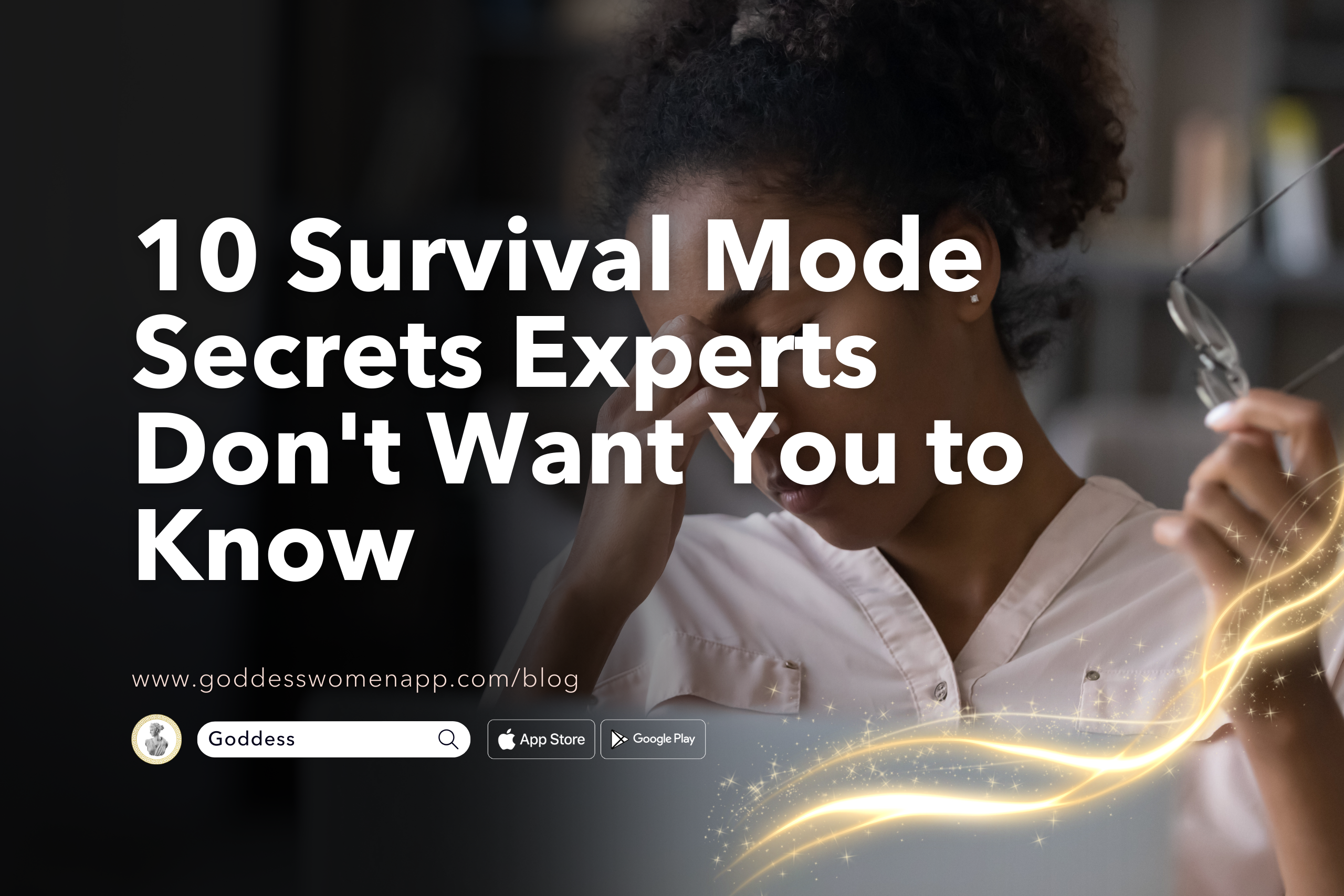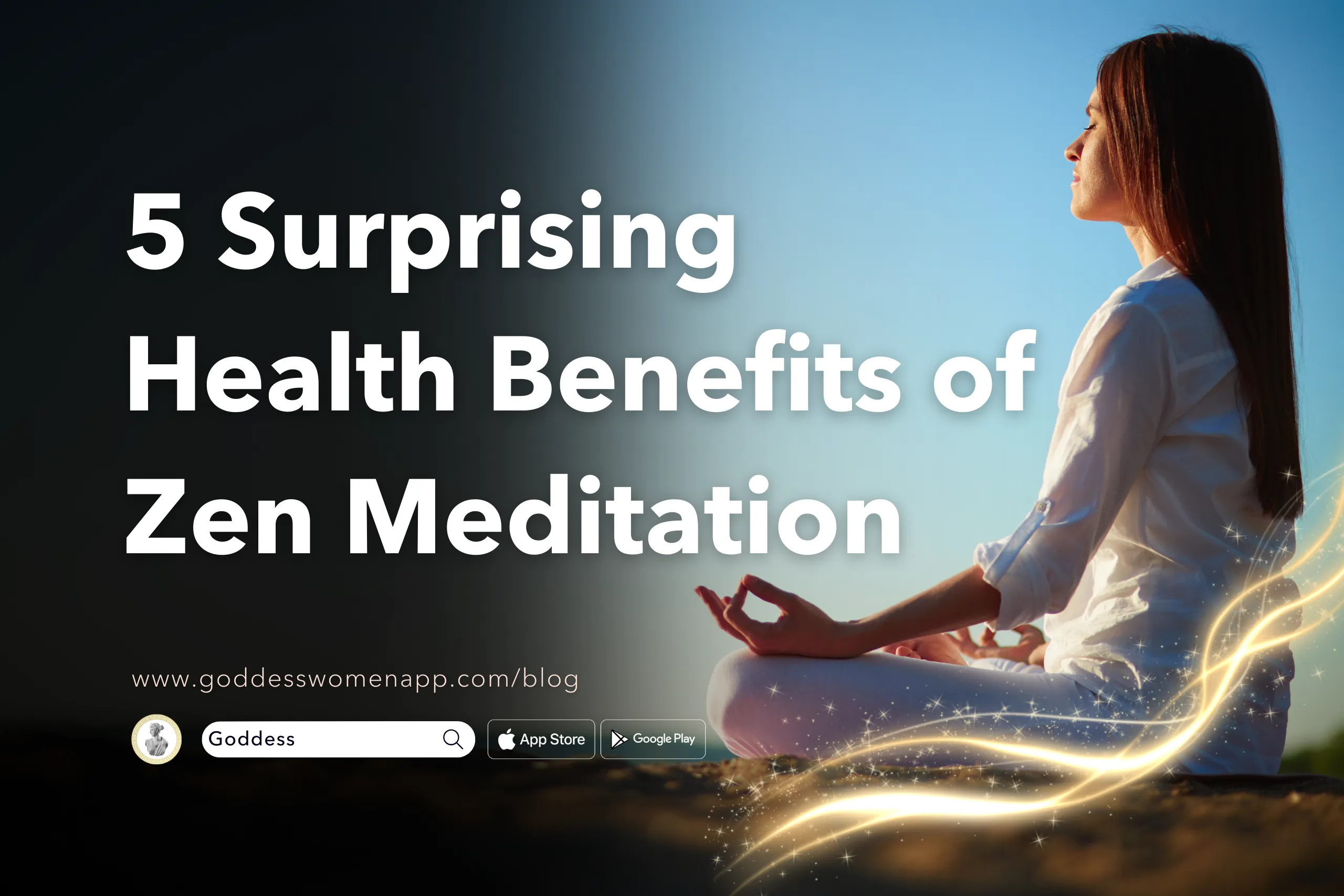Introduction
In today’s fast-paced world, where the buzz of smartphones and the blare of breaking news are constant companions, many of us find ourselves perpetually in “survival mode.” This state, while often associated with the gritty resolve needed to endure extreme or stressful situations, has seeped into our daily lives, affecting our mental and physical well-being. But what lies beneath this relentless drive to survive? How does chronic stress, the nervous system’s marathon of alerts, and the cascade of stress hormones truly impact our health, happiness, and ability to thrive?
Survival mode isn’t just about enduring a very traumatic experience or event; it’s a comprehensive response from our body and mind to perceived threats, prolonged periods of stress, and communal trauma. It influences how we think, feel, and behave, often in ways that are invisible to our conscious self. But by understanding this complex interplay—between our autonomic nervous system (which includes the “fight or flight” response) and our emotional health—we can begin the journey toward overcoming survival mode, moving from merely surviving to truly living a fulfilling life.

1. The Hidden Truth Behind Survival Mode
At its core, survival mode is a testament to human resilience, a built-in response designed to protect us from danger. It’s the body and brain working in overdrive, ensuring that we can cope with immediate threats. However, when survival mode becomes a chronic state, triggered not by traumatic events or life-threatening situations but by everyday tasks, unresolved stress, and traumatic experiences, it can lead to profound physical and mental health issues.
The Physical and Mental Toll
Chronic stress and the constant activation of the stress response system can wreak havoc on our bodies and minds. Elevated blood pressure, heart rate, and the release of stress hormones like cortisol and adrenaline can lead to health issues, including heart disease, anxiety, depression, and memory issues. The physical symptoms of prolonged stress, such as trouble sleeping and strained relationships, are often accompanied by emotional turmoil, including feelings of anxiety, depression, and a pervasive sense of personal failure.
The Autonomic Nervous System: A Double-Edged Sword
Our autonomic nervous system, responsible for the “fight or flight” response, is designed to protect us in times of danger. Yet, when this system is constantly engaged due to prolonged stress or traumatic living situations, it can lead to an imbalance in our emotional regulation and physical health. This very survival mode affect our brain, while crucial for our protection, can become our Achilles’ heel, leading to a cycle of unhealthy coping mechanisms, emotional distress, and physical symptoms.
Overcoming Survival Mode Through Self-Compassion and Mindfulness
Breaking free from survival mode requires a multifaceted approach that includes practicing self-compassion, focusing on the present moment, and engaging in mindfulness practices. By acknowledging our emotional and physical needs, offering ourselves self-kindness, and employing strategies like deep breathing, rhythmic movement, and spending time in nature, we can begin the healing process. It’s about learning to respond to our body’s signals with care, practice self compassion, rather than ignoring or fighting against them.
Self-care, critical thinking, and seeking professional help are also effective strategies for overcoming the adverse effects of living in survival mode. By addressing our basic needs, including getting enough sleep, eating well, and engaging in physical activity, we can improve our daily functioning and energy levels. Furthermore, replacing negative thoughts and self-talk with positive affirmations and problem-solving can help us regain control of our emotions and our life.
Conclusion
Understanding survival mode is the first step toward regaining a sense of well-being and embarking on a fulfilling life. By recognizing the signs of chronic stress and employing strategies to mitigate its effects, we can transform our approach to life’s challenges, moving from a state of constant alertness to one of balance and resilience. With self-compassion, mindfulness, and a commitment to self-care, the journey from survival mode to a life rich with purpose and joy is not only possible but within reach.

2. Chronic Stress: The Silent Enemy in Survival Mode
Chronic stress, often described as the silent enemy, acts as a stealthy saboteur in our lives, subtly undermining our health, happiness, and overall well-being. This relentless form of stress keeps our body in a prolonged state of survival mode, affecting our emotional and physical health in myriad ways. When the body is constantly on alert, it can lead to a host of issues, including depression, anxiety, heart rate irregularities, and a weakened immune system, making us more susceptible to illness.
The Physical and Psychological Impact
Chronic stress can manifest physically in symptoms such as heart palpitations, elevated blood pressure, and digestive issues. These symptoms often accompany emotional disturbances, including feelings of anxiety, depression, and irritability. Individuals may find themselves short-tempered, struggling to cope with emotions, and experiencing a pervasive sense of danger that interferes with their daily life. The brain, under constant pressure, may falter in its ability to focus and process information, leading to memory issues and difficulty in making decisions.
The Role of Trauma
For those who have experienced trauma, chronic stress can be an unwelcome magnifier of past pain communal trauma, bringing symptoms to the forefront and making it challenging to move forward. Trauma imprints itself on the body and brain, influencing how we sense, feel, and react to new stressors. This can create a cycle where past traumatic experiences are continually relived, exacerbating feelings of depression and anxiety and making everyday tasks feel insurmountable.
Seeking Professional Help
Navigating the treacherous waters of chronic stress often requires more than just self-care and mindfulness; professional help can be invaluable. Therapists and counselors specialize in helping individuals understand and process their emotions, develop coping strategies for dealing with stress, and work through past trauma. This guidance can be crucial for those feeling unmotivated or overwhelmed by the challenges posed by chronic stress.

3. How Your Nervous System Switches Gears Under Threat
Our nervous system, a complex network that relays messages between the brain and the rest of the body, plays a pivotal role in how we respond to stress and danger. Under threat, the nervous system shifts gears dramatically, prioritizing our immediate survival through the “fight or flight” response. This rapid shift affects nearly every system in the body, preparing us to either confront the danger or escape it.
The “Fight or Flight” Response
When faced with a threat, our body’s sympathetic nervous system is activated, resulting in an increased heart rate, heightened senses, and a surge of energy. This response is designed to optimize our chances of survival, directing blood flow to essential muscles and increasing our alertness. However, in the case of chronic stress, this system can become overactivated, leaving us in a perpetual state of high alert, even in the absence of immediate danger.
The Psychological Effects
This constant readiness to respond to a threat can have profound psychological effects. It can lead to a heightened state of anxiety, disrupt our ability to focus, and make us more prone to mood swings and depression. The brain, caught in this endless loop of stress response, may struggle to regulate emotions, leading to an increased risk of developing symptoms of PTSD, especially in those who have experienced trauma.
Coping with an Overactive Stress Response
Understanding how to cope with this overactive stress response is crucial. Techniques such as deep breathing, mindfulness practices, and physical exercise can help recalibrate the nervous system, reducing the intensity of the “fight or flight” reaction. Additionally, grounding techniques can assist individuals in reconnecting with their body and the present moment, helping to alleviate the sense of constant danger.
Chronic stress and the body’s response to threat are deeply intertwined with survival brain, influencing our emotional and physical health in significant ways. By recognizing the signs of chronic stress and taking steps to address them—whether through lifestyle changes, mindfulness practices, or seeking professional help—we can begin to untangle the complex web of survival mode, paving the way for a healthier, more balanced life.

4. The Unseen Impact of Survival Mode on Mental Health
Survival mode, while a critical response to immediate danger, can have a profound and often unseen impact on mental and emotional health, when it becomes a prolonged state. This constant state of alertness, driven by chronic stress, not only exhausts the body but also wears on the mind, leading to a host of mental health challenges that can diminish the quality of life and hinder one’s ability to thrive.
Mental Health Toll of Prolonged Survival Mode
The mental health toll of prolonged survival mode is significant. Individuals may experience heightened anxiety, depression, and emotional instability. The stress of constantly being on edge can erode one’s sense of security and well-being, making everyday tasks feel overwhelming and joy seem out of reach. The emotional exhaustion that accompanies living in survival mode can lead to feelings of hopelessness and despair, affecting one’s ability to connect with others, concentrate, and find fulfillment in life.
The Connection Between Survival Mode and Mental Health Disorders
The relentless pressure and stress of living in survival mode can also exacerbate or contribute to the development of mental health disorders. Conditions such as Post-Traumatic Stress Disorder (PTSD), Generalized Anxiety Disorder (GAD), and major depressive disorder can be linked to or intensified by the chronic stress and unresolved trauma often present in those stuck in survival mode. These disorders manifest in a variety of symptoms, from intrusive thoughts and memory issues to a pervasive sense of doom and an inability to regulate emotions effectively.
Overcoming the Mental Health Challenges of Survival Mode
Breaking free from the mental health challenges of survival mode requires a multifaceted approach. Recognizing the need for professional help is a critical first step. Therapists and mental health professionals can provide the tools and support needed to process trauma, manage stress, and develop healthier coping mechanisms. Additionally, practices such as mindfulness, meditation, and self-care can help restore a sense of calm and control, promoting emotional regulation and the healing process.

5. Stress Hormones 101: Cortisol and Adrenaline Explained
The body’s response to stress involves a complex network of hormonal signals, with cortisol and adrenaline playing lead roles. Understanding how these stress hormones affect the body and mind is crucial for managing the impacts of survival mode and finding pathways to resilience and well-being.
Cortisol: The Stress Hormone
Cortisol, often dubbed the “stress hormone,” is produced by the adrenal glands in response to stress and low blood-glucose concentration. Under normal circumstances, cortisol plays an essential role in helping the body respond to stress, regulating blood sugar levels, reducing inflammation, and assisting in memory formulation. However, when cortisol levels remain high for prolonged periods due to chronic stress or survival mode, it can lead to a host of health problems, including weight gain, high blood pressure, sleep disturbances, and a weakened immune system. High cortisol levels can also affect mental health, contributing to anxiety, depression, and difficulties in concentration and memory.
Adrenaline: The Fight or Flight Hormone
Adrenaline, also known as epinephrine, is the hormone responsible for the body’s “fight or flight” response. It increases heart rate, elevates blood pressure, and boosts energy supplies in response to acute stress. This sudden rush of adrenaline enhances our ability to respond to immediate threats but, like cortisol, can lead to problems when the stress response is constantly activated. Overexposure to adrenaline can cause exhaustion, jitteriness, and increased stress on the heart and cardiovascular system, leading to long-term health issues.
Managing Stress Hormones for Better Health
Balancing these stress hormones involves adopting strategies to manage stress effectively. Regular physical activity, adequate rest, healthy eating, and mindfulness practices can all help regulate the body’s production of cortisol and adrenaline. Additionally, learning healthy stress coping mechanisms and stress-reduction techniques, such as deep breathing exercises and progressive muscle relaxation, can help mitigate the effects of stress hormones and promote overall well-being.
Understanding the role of stress hormones in survival mode offers insights into how chronic stress affects our bodies and minds. By taking steps to manage stress and its hormonal underpinnings, we can protect our health and improve our quality of life, moving from being enter survival mode to thriving.

6. The Power of Mindfulness in Combatting Survival Mode
Mindfulness, the practice of being fully present and engaged in the moment, without judgment, offers a powerful antidote to the relentless pace and constant stress that of survival mode. By fostering a heightened awareness of our thoughts, emotions, and bodily sensations, mindfulness can help us break free from the automatic stress response and cultivate a sense of peace and resilience.
Mindfulness Practices to Disrupt Survival Mode
Engaging in mindfulness practices such as meditation, deep breathing exercises, and mindful movement (like yoga or tai chi) can significantly lower stress levels, reduce symptoms of anxiety and depression, and improve emotional regulation. These practices encourage a shift in focus from past worries and future anxieties to the present moment, allowing individuals to regain control over their stress responses and emotional reactions.
The Benefits of Mindfulness for Mental Health
The benefits of mindfulness extend beyond immediate stress relief. Regular mindfulness practice has been shown to decrease the production of stress hormones, lower blood pressure, and reduce symptoms of chronic stress. It can enhance cognitive functions like attention, concentration, and memory, which are often compromised in survival mode. By promoting a state of calm and focused awareness, mindfulness can help individuals navigate stressful situations with greater ease and effectiveness, leading to improved mental health and well-being.
7. Nutrition’s Role in Surviving Survival Mode
Nutrition plays a critical, yet often overlooked, role in managing stress and surviving survival mode. What we eat can directly impact our mood, energy levels, and ability to cope with stress, thanks to the intricate connection between the gut and the brain.
Foods That Fight Stress
Incorporating a diet rich in whole foods, such as fruits, vegetables, whole grains, lean protein, and healthy fats, can help stabilize blood sugar levels and supply the necessary nutrients for optimal brain function. Certain foods, like those high in omega-3 fatty acids, antioxidants, and B vitamins, have been shown to reduce the effects of stress on the body and support emotional well-being.
Avoiding Stress-Inducing Foods
Conversely, high-sugar, high-fat, and heavily processed foods can exacerbate stress and anxiety, leading to fluctuations in mood and energy. Limiting caffeine and alcohol intake is also crucial, as they can trigger or worsen anxiety and disrupt sleep patterns, further fueling the cycle of stress.

8. The Science of Sleep: Resting Your Way Out of Survival Mode
Sleep is a fundamental component of recovering from and managing survival mode, yet it is often the first casualty of chronic stress. The science of sleep demonstrates its restorative power on the mind and body, highlighting the importance of quality sleep for maintaining mental health, physical health, and overall well-being.
The Impact of Sleep on Stress and Health
Adequate sleep helps to regulate the production of stress hormones, repair the body’s cells, consolidate memories, and reset our emotional brain circuits, which can become overwhelmed by the day’s stresses. Lack of sleep, on the other hand, can heighten sensitivity to stress, impair cognitive function, and increase the risk of depression, anxiety, and other mental health issues.
Strategies for Improving Sleep
To combat the negative effects of survival mode on sleep, establishing a consistent sleep schedule, creating a calming bedtime routine, and making the bedroom a comfortable, technology-free zone can be beneficial. Techniques such as progressive muscle relaxation, deep breathing exercises, and mindfulness meditation before bedtime can also enhance sleep quality, helping individuals to break free from the cycle of stress and survival mode.
In conclusion, mindfulness, nutrition, and sleep play pivotal roles in combatting the effects of survival mode. By integrating mindfulness practices, making informed nutritional choices, and prioritizing restorative sleep, individuals can significantly improve their resilience to stress, enhance their mental and emotional well-being, and step out of survival mode into a more balanced and fulfilling life.
9. Physical Activity: A Natural Escape From Survival Mode
Physical activity serves as a potent antidote to the rigors of survival mode, offering a natural and effective means of stress relief. Engaging in regular exercise not only diverts the mind from stressors but also triggers a series of beneficial physiological changes that can help mitigate the effects of chronic stress and improve overall health.
The Benefits of Exercise on the Mind and Body
Exercise stimulates the production of endorphins, the body’s natural painkillers and mood elevators, often referred to as the “feel-good” hormones. These biochemical changes can reduce anxiety, depression, and sensitivity to stress. Additionally, physical activity helps to lower levels of the body’s stress hormones, such as adrenaline and cortisol, further alleviating feelings of stress.
Regular exercise also improves the quality of sleep, enhances self-esteem, and increases energy levels, helping to counteract the exhaustion and lethargy often associated with prolonged stress. Whether it’s a brisk walk, a yoga session, or a vigorous workout, finding an activity that you enjoy and can engage in regularly is key to unlocking the stress-relieving benefits of physical exercise.

10. Building a Support System: Why You Don’t Have to Survive Alone
Survival mode can often make us feel isolated, as if we are battling our stresses and fears alone. However, building a robust support system is a crucial strategy for navigating through tough times. Human connection provides emotional sustenance, giving us the strength to face challenges and the comfort of knowing we’re not alone in our struggles.
The Importance of Social Support
Social support can come from various sources: family, friends, community groups, or mental health professionals. These connections can offer practical help, emotional comfort, and valuable perspectives that can make coping with stress more manageable. Sharing our experiences with others who understand can also validate our feelings, making them seem less daunting and more surmountable.
Engaging in group activities, joining support groups, or simply maintaining open communication with loved ones can foster a sense of belonging and significantly reduce feelings of anxiety unresolved stress and depression. For those facing particularly challenging times, professional help from therapists or counselors can provide the guidance and support needed to navigate through survival mode.
Conclusion
Survival mode is an instinctual response to stress and danger, but when it becomes a chronic state, it can severely impact our mental, emotional, and physical health. The journey out of survival mode and into a more balanced, fulfilling life requires a holistic approach. By incorporating mindfulness practices, maintaining a nutritious diet, prioritizing sleep, engaging in regular physical activity, and building a supportive network, individuals can mitigate the effects of chronic stress and reclaim their well-being.
Life’s challenges do not have to be faced alone, nor should they dominate our existence. With the right strategies and support, we can transition from merely surviving to thriving, experiencing life’s richness in its fullness and finding joy and resilience in the face of adversity.





